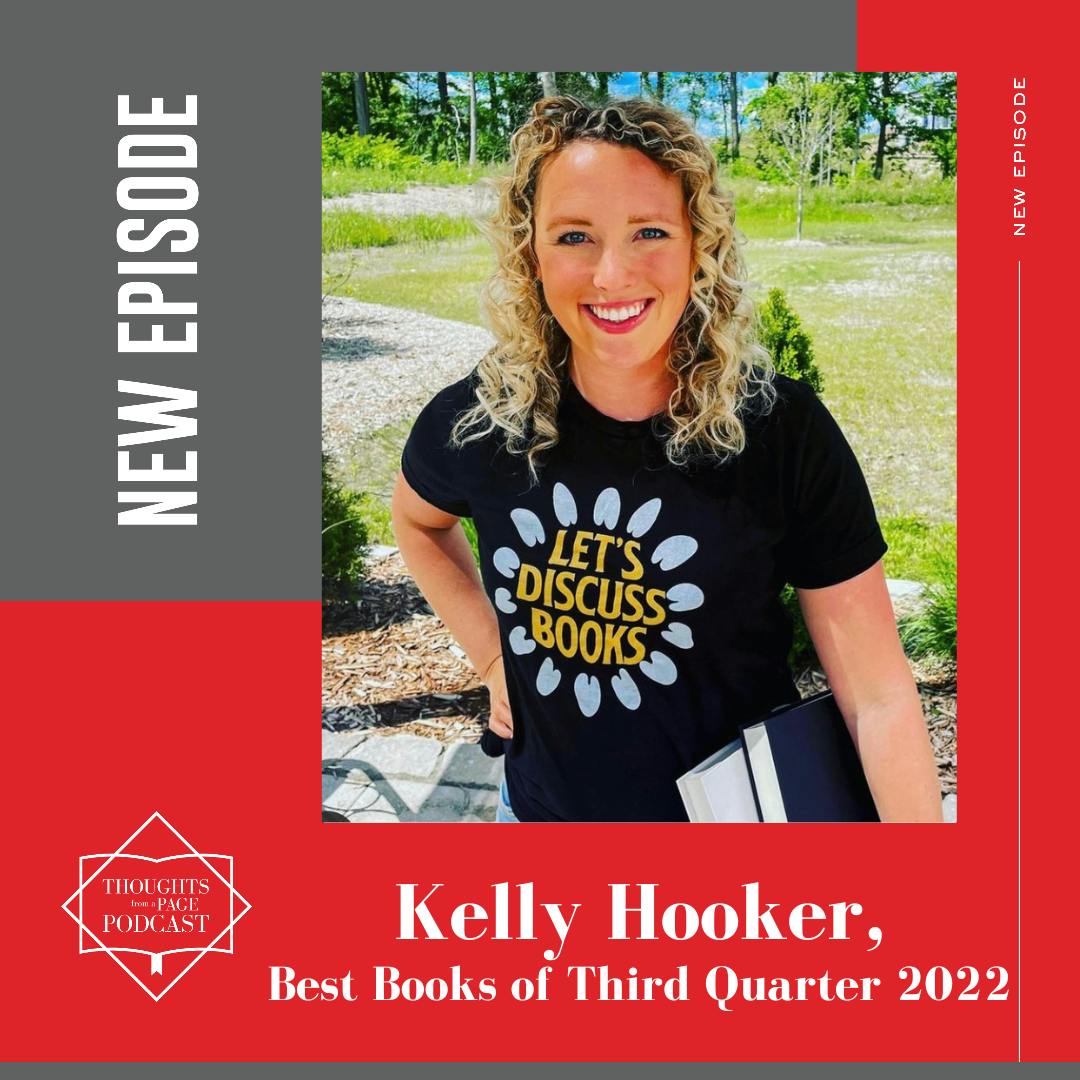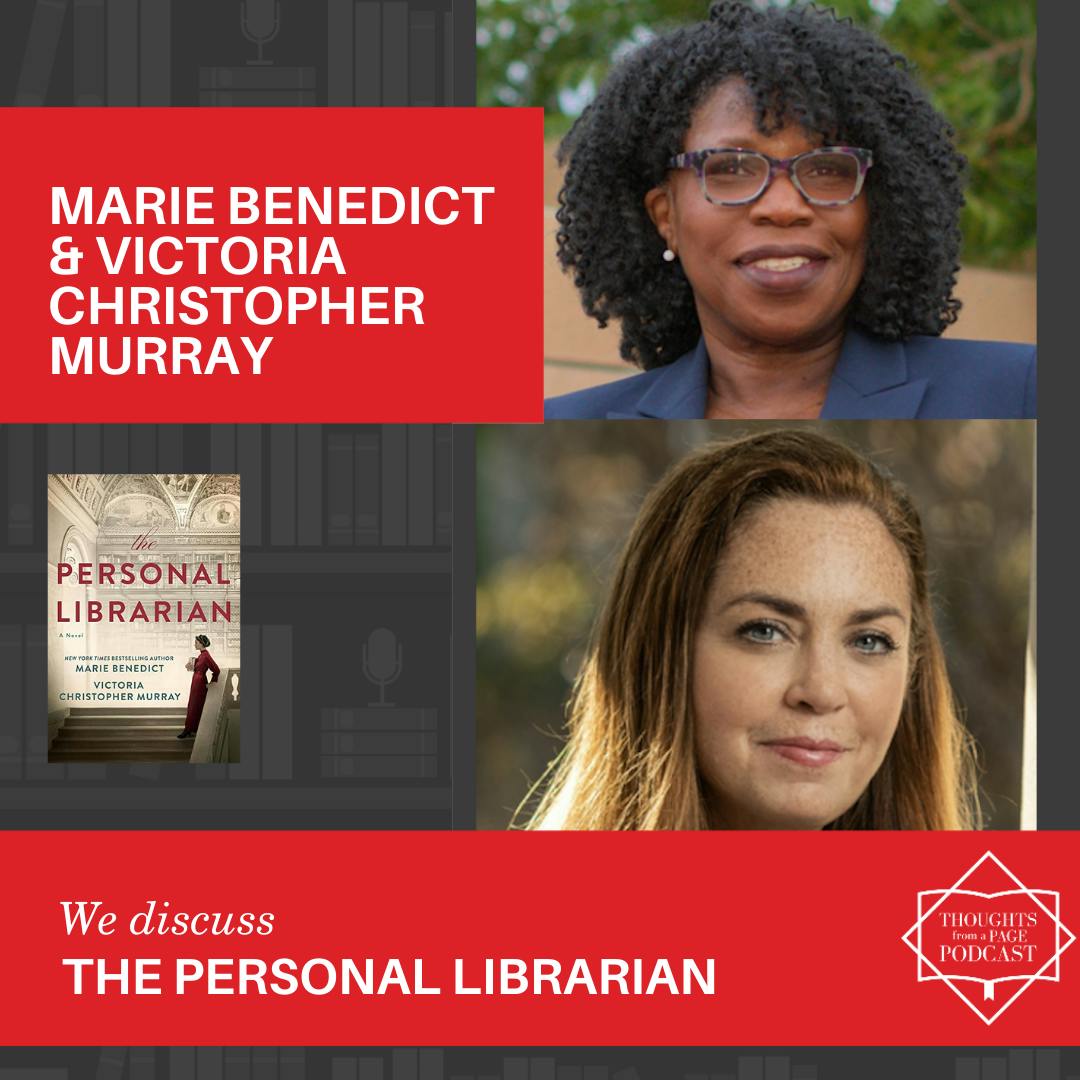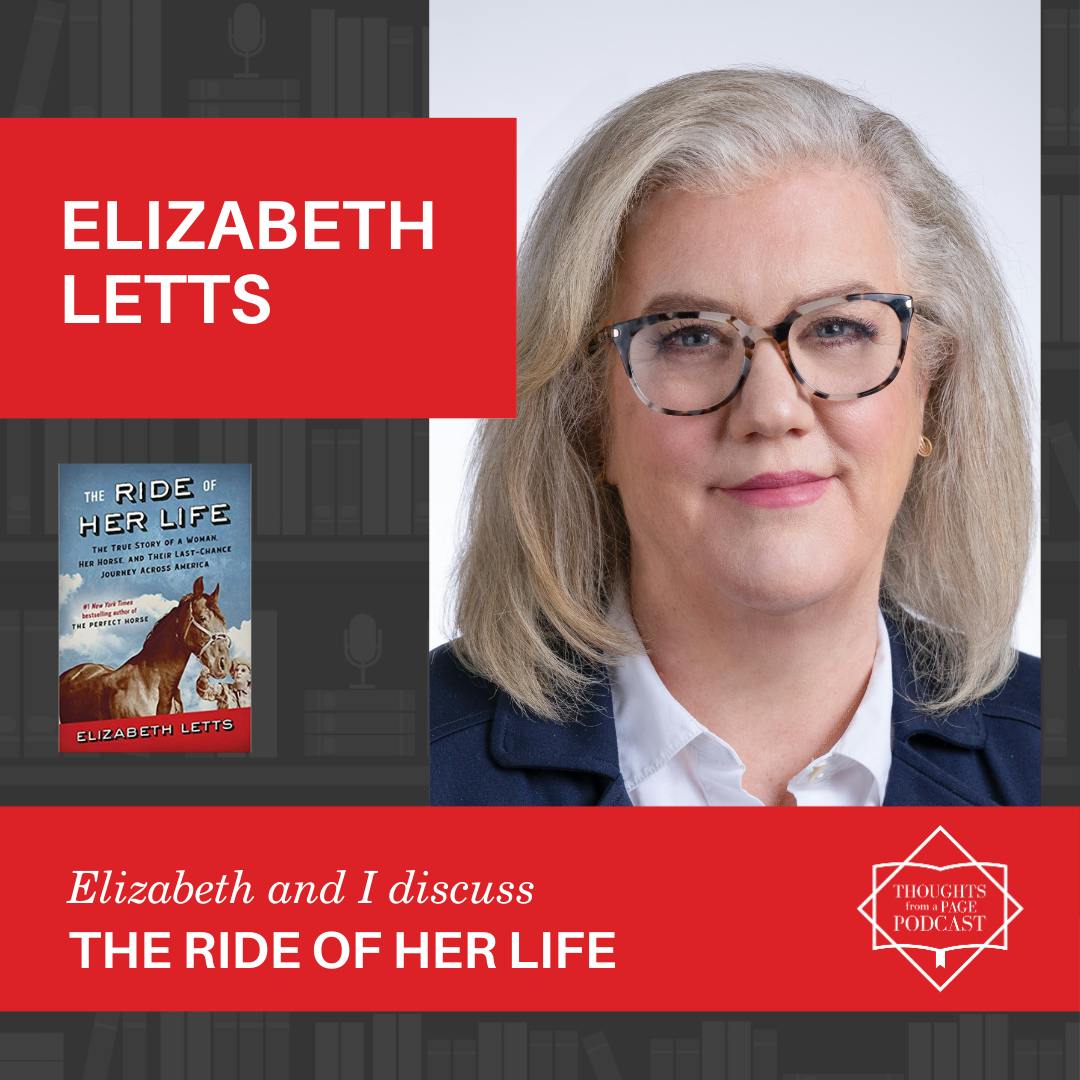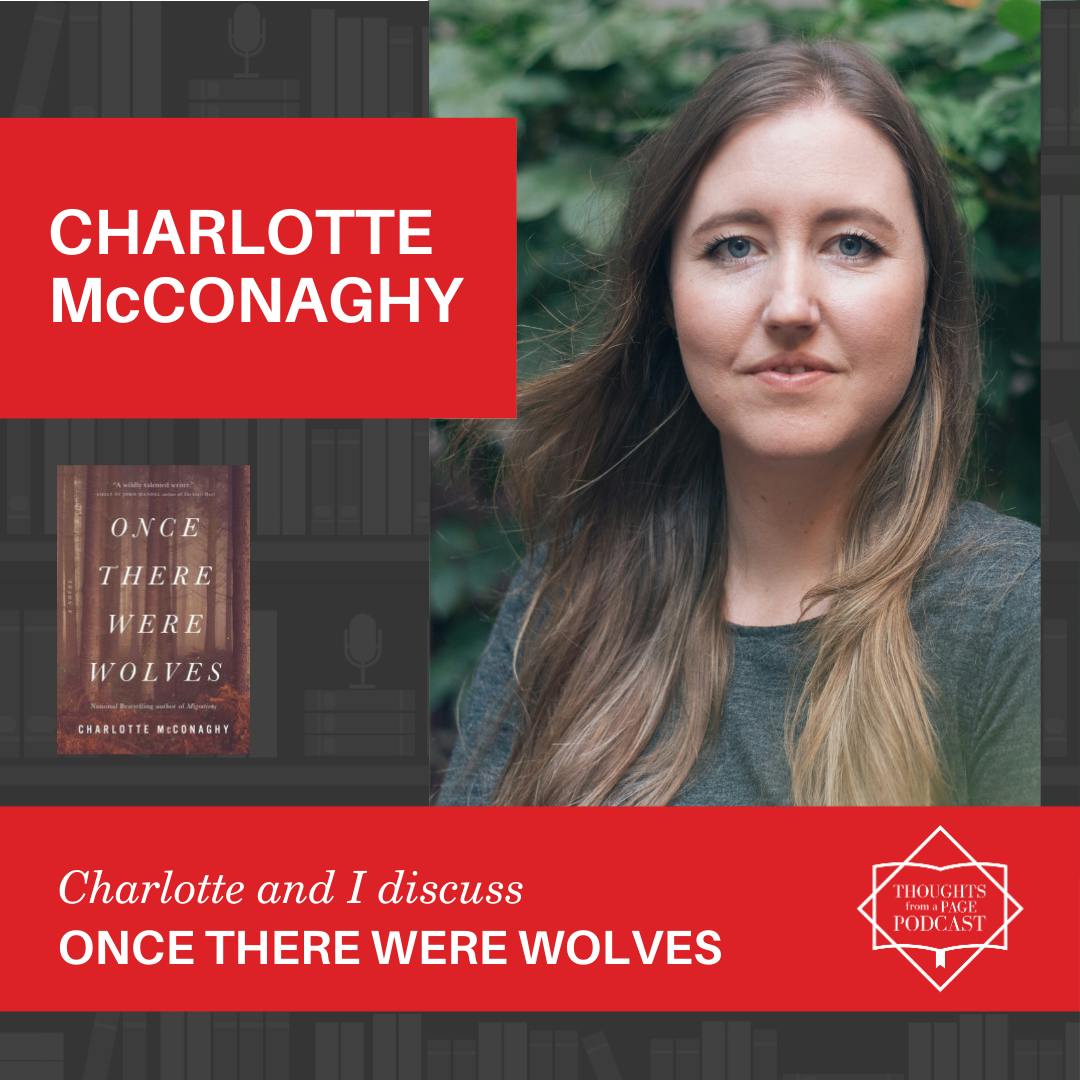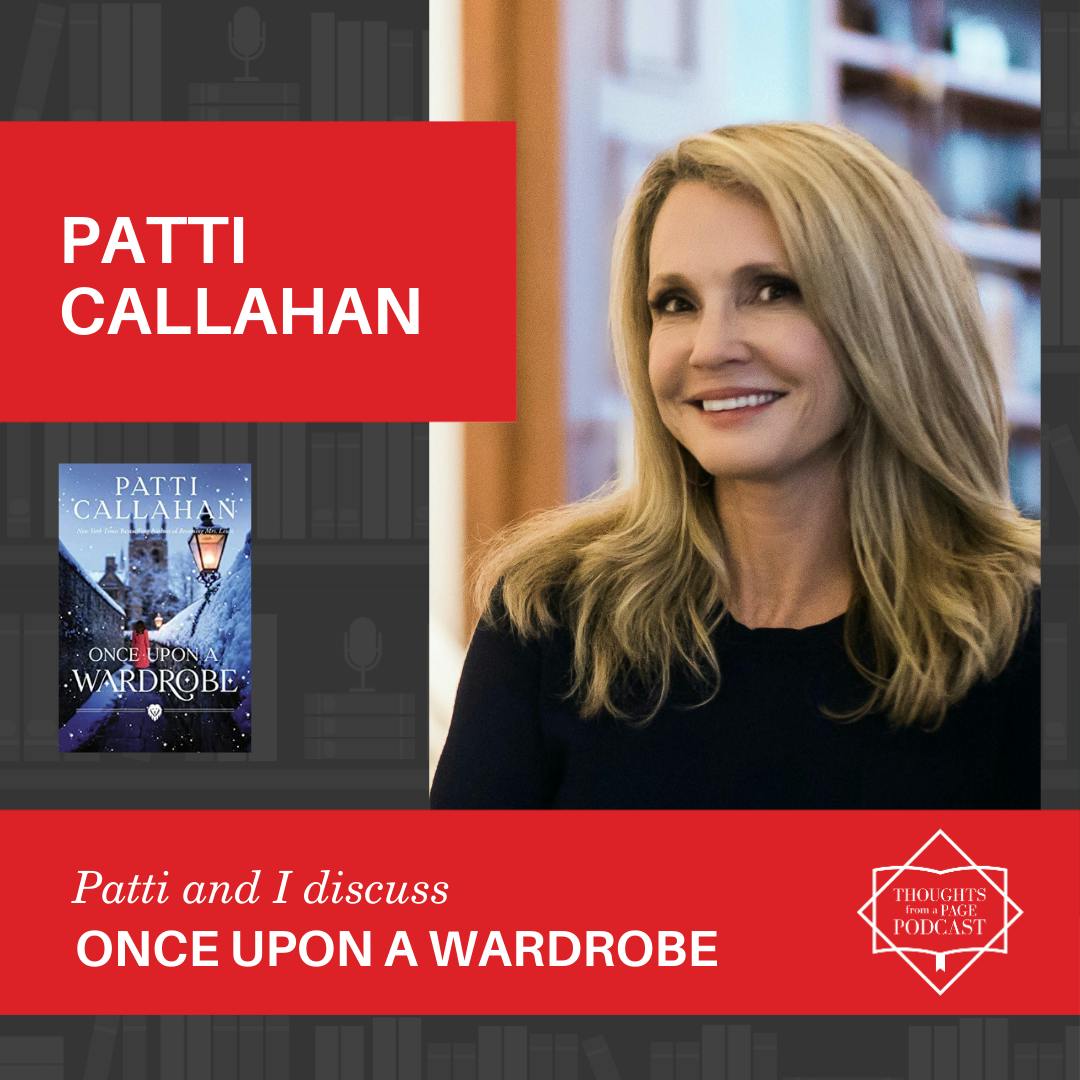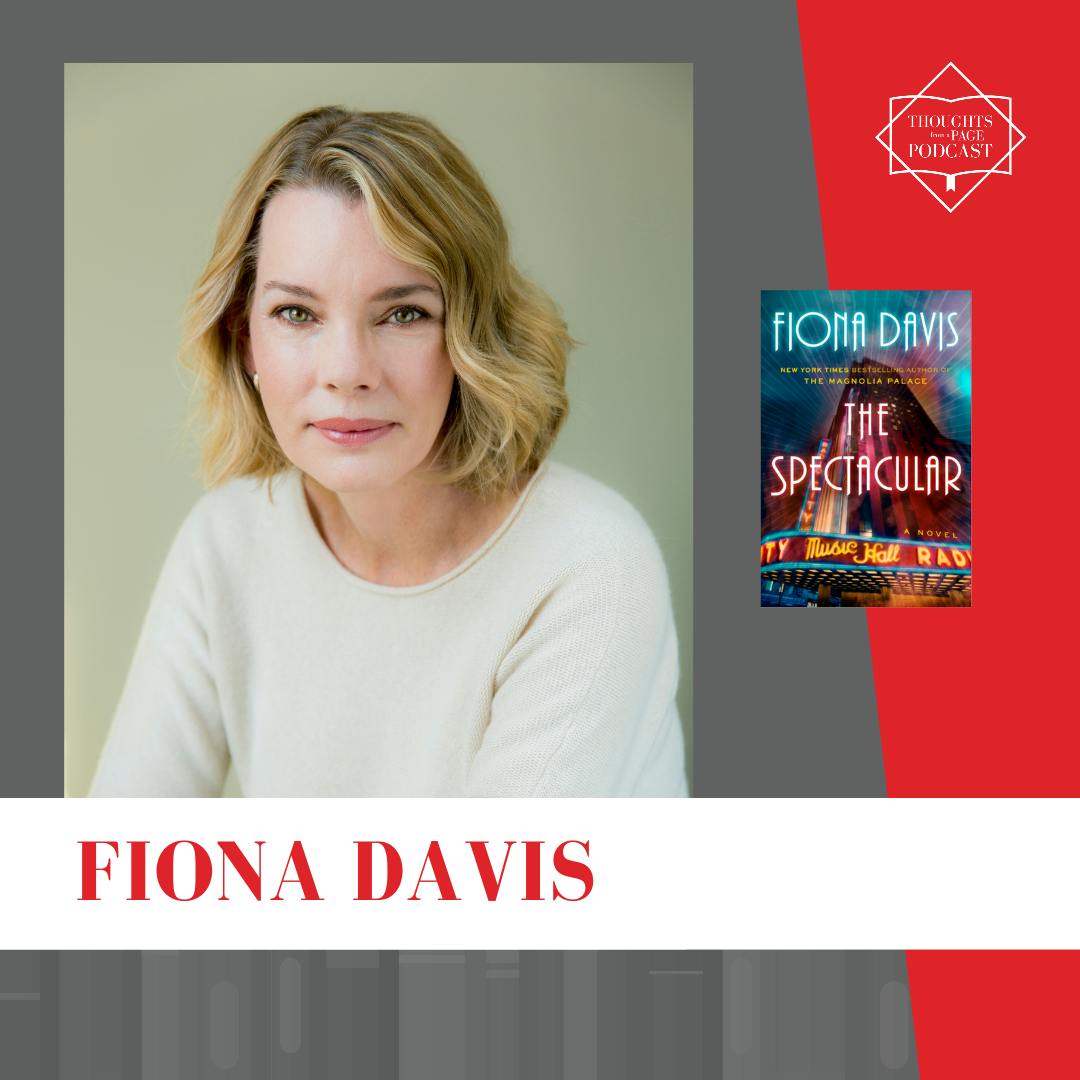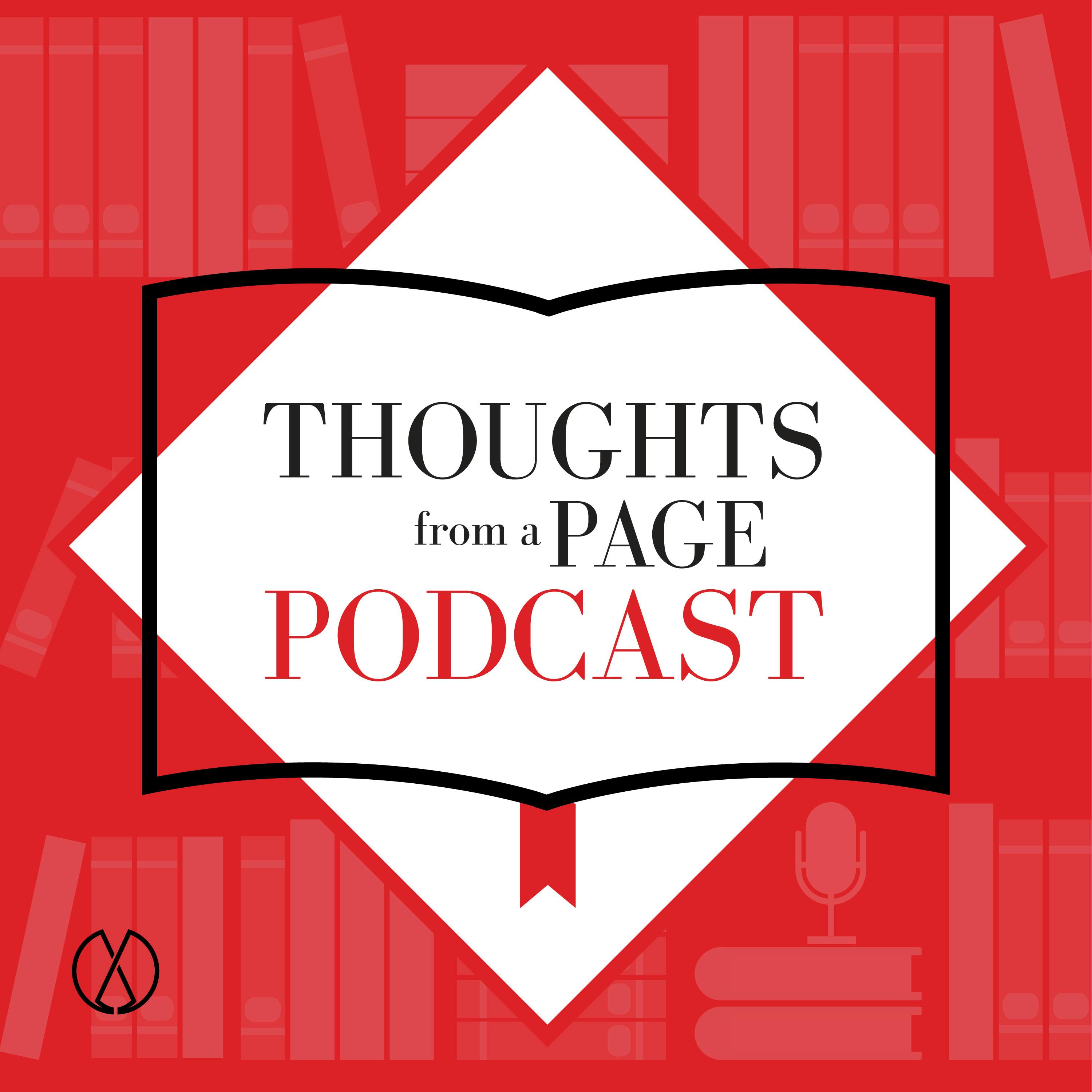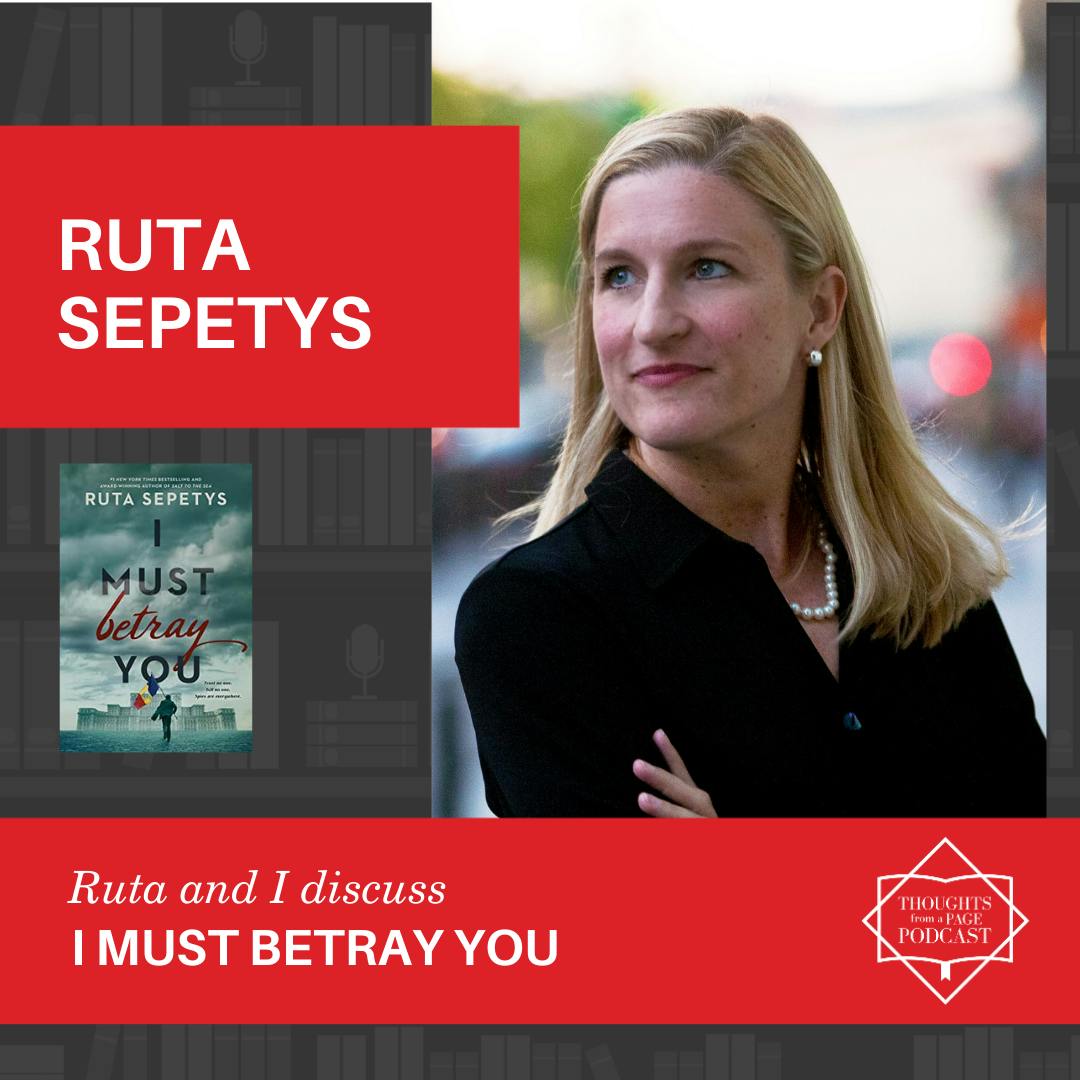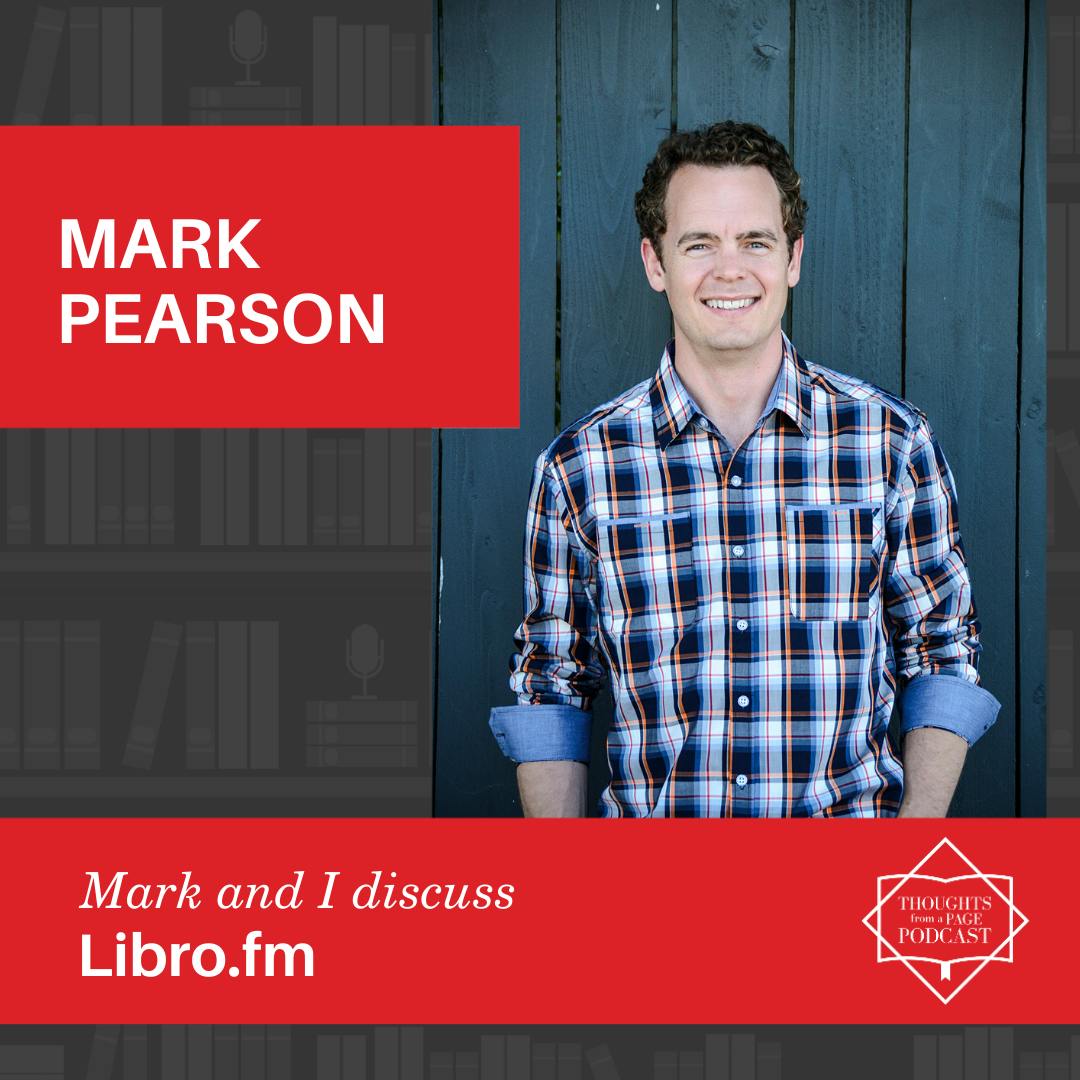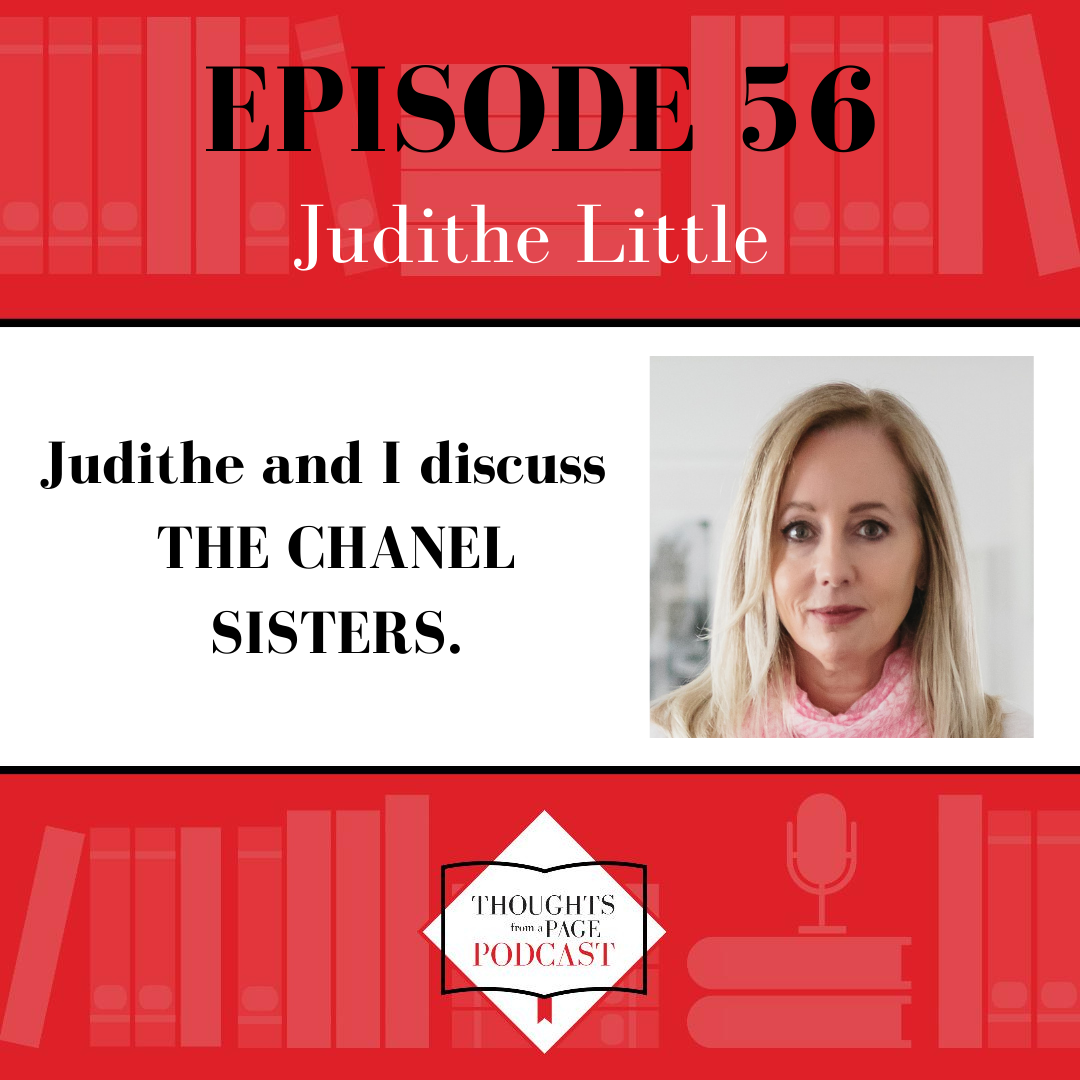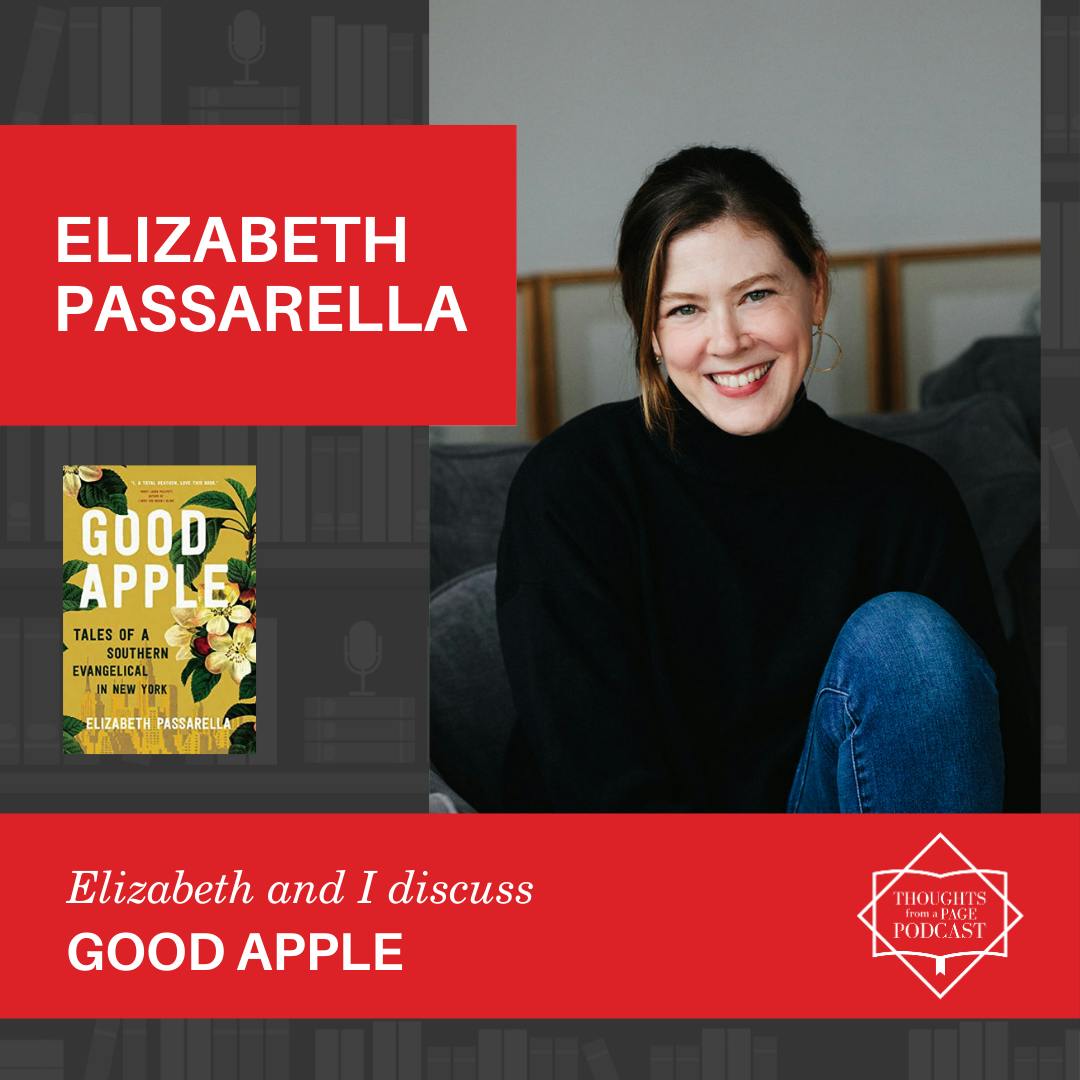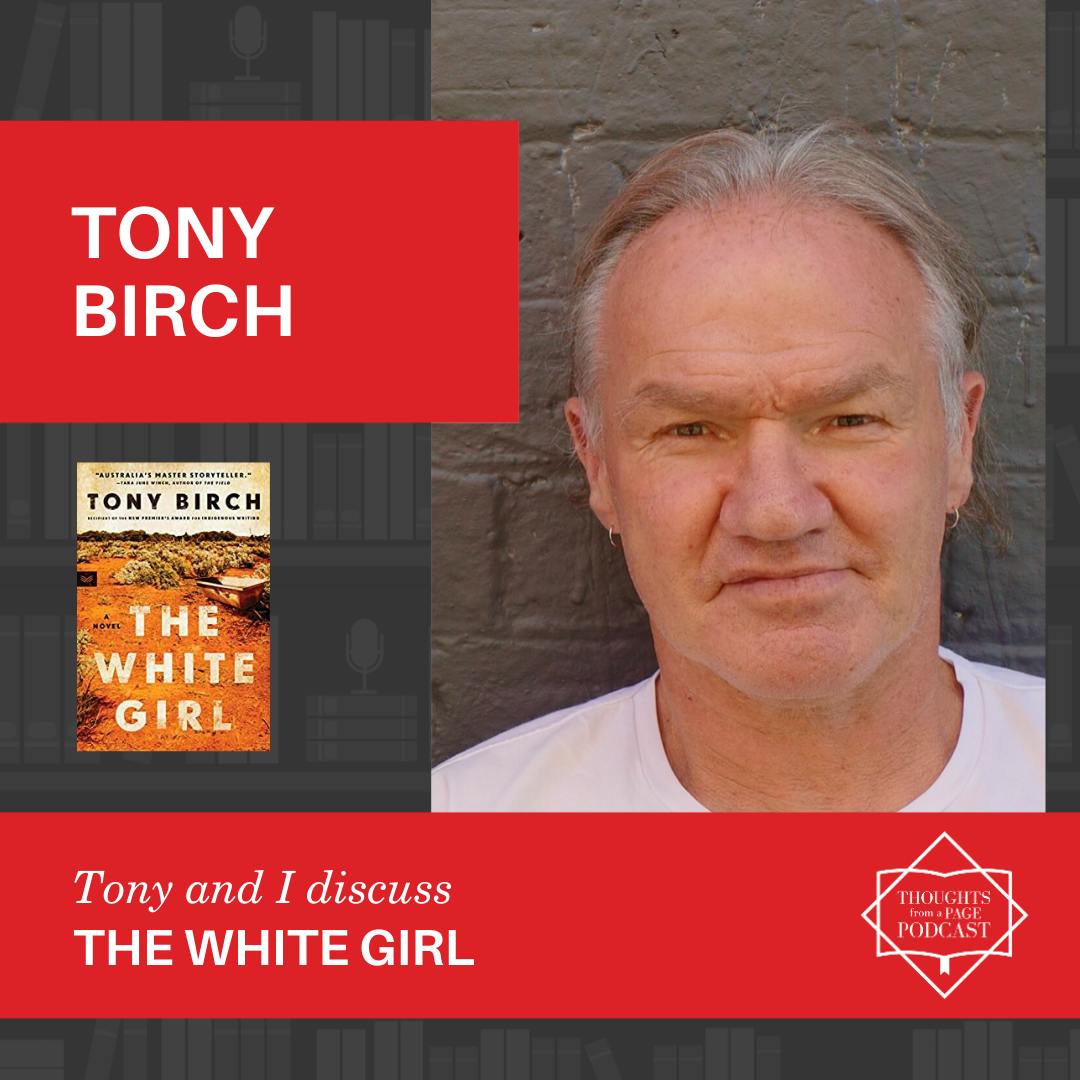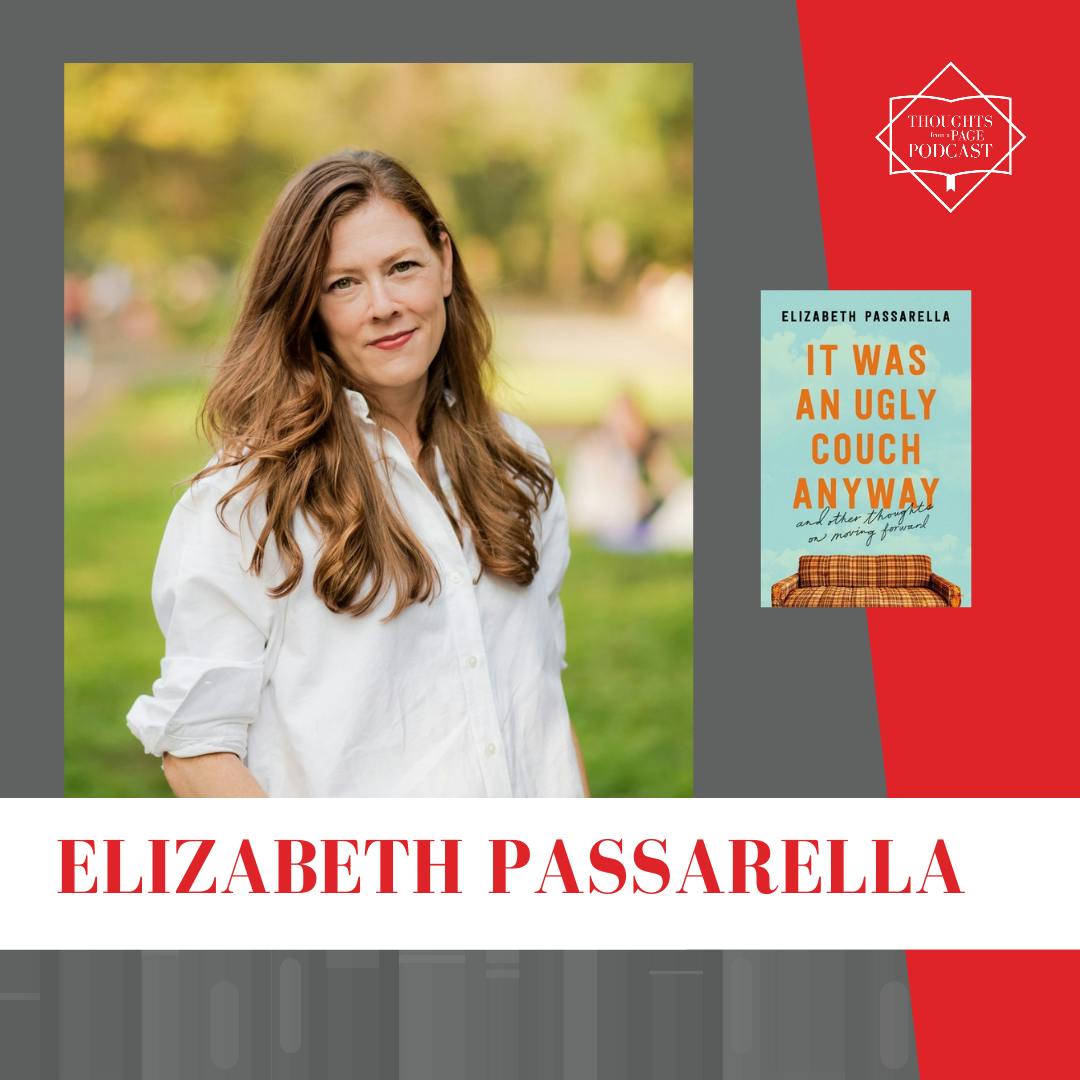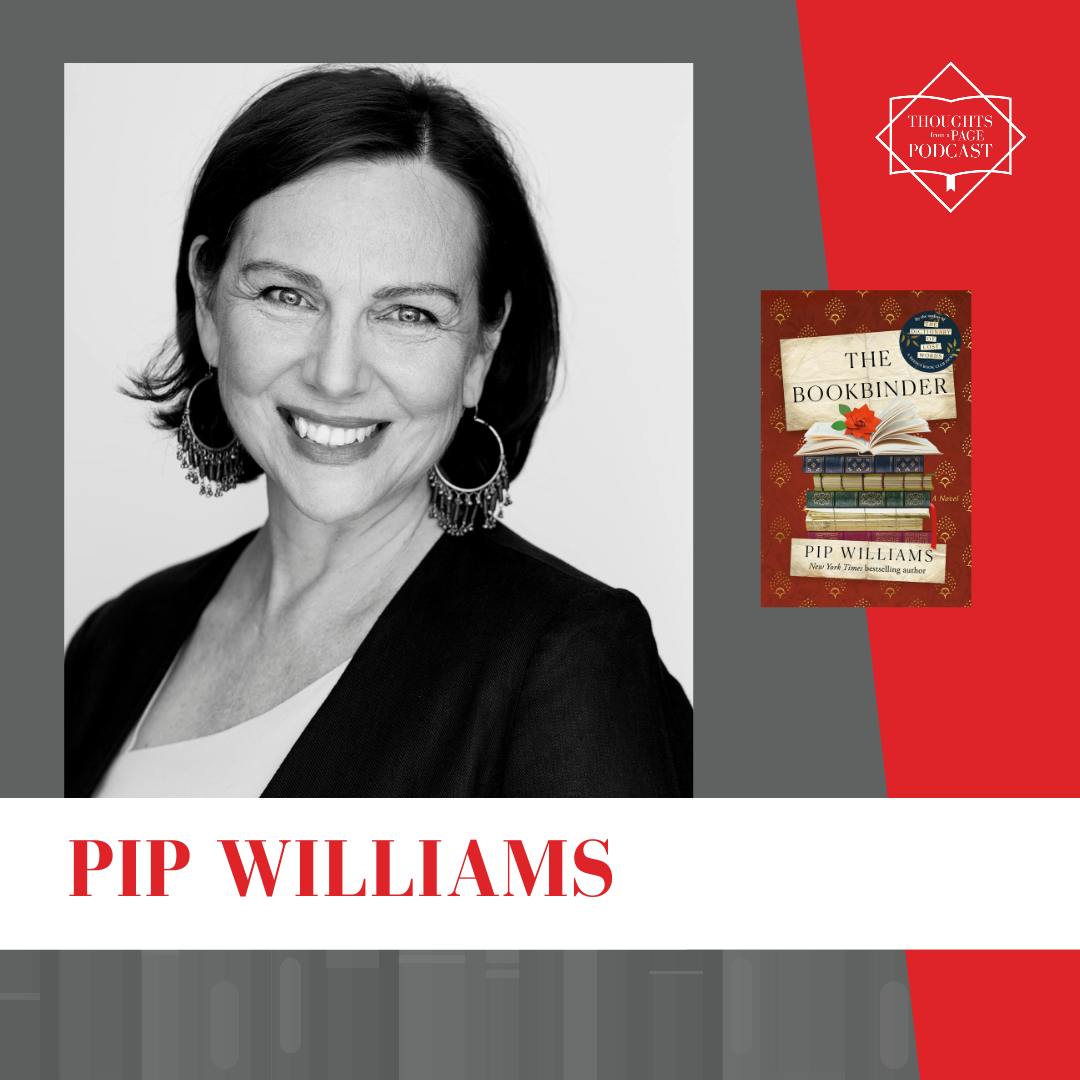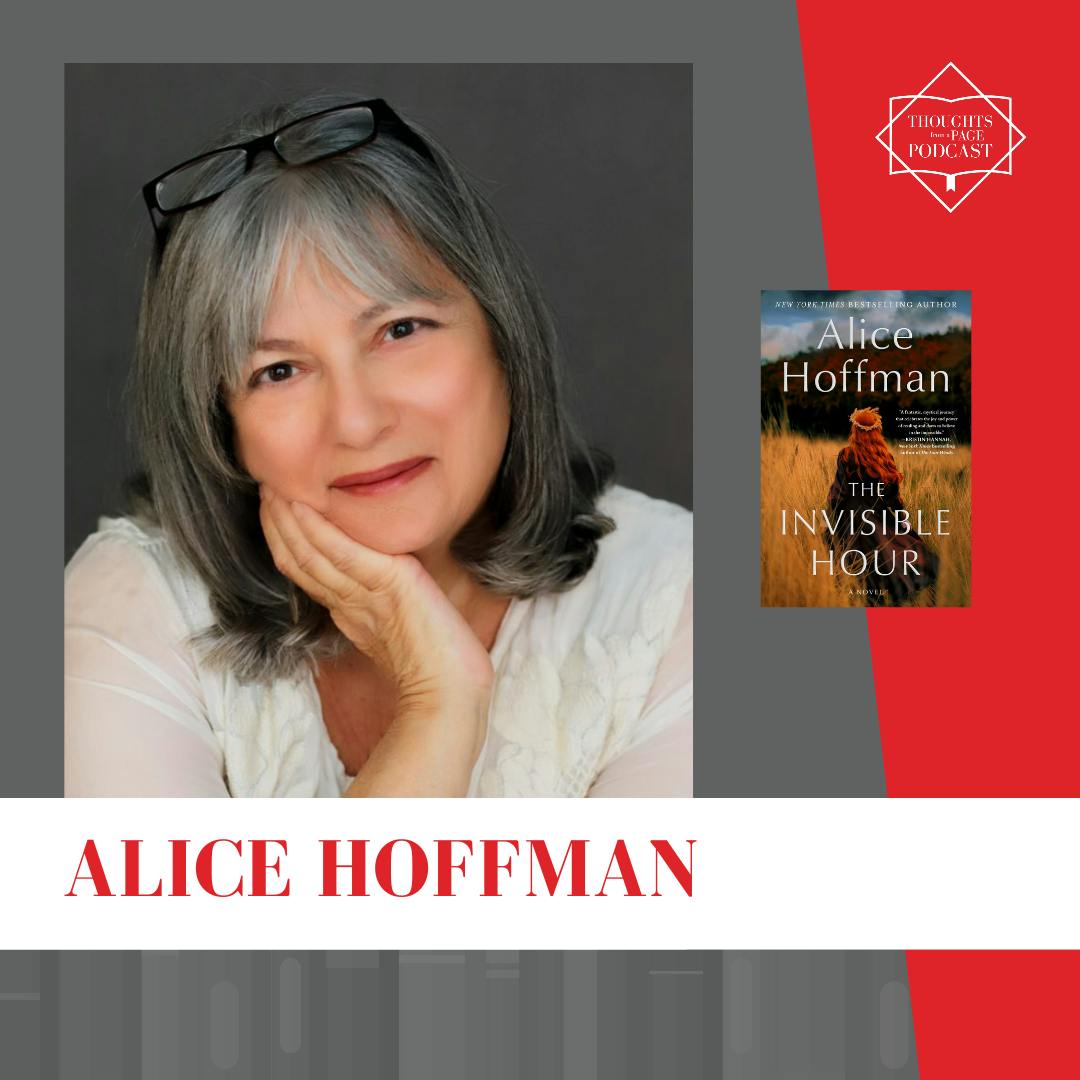
In this interview, Ellen and I discuss Rebel with a Clause, her grammar table and how it all began, how grammar appeals to people from all walks of life, creating a documentary about the grammar table, organizing the topics in her book, what surprised her the most about her adventure, and much more.
In this interview, Ellen and I discuss Rebel with a Clause, her grammar table and how it all began, how grammar appeals to people from all walks of life, creating a documentary about the grammar table, organizing the topics in her book, what surprised her the most about her adventure, and much more.
Ellen's recommended reads are:
- How to Survive a Plague by David France
- Year of Wonders by Geraldine Brooks
- The Empress and the English Doctor by Lucy Ward
Support the podcast by becoming a Page Turner on Patreon. Other ways to support the podcast can be found here.
If you enjoyed this episode and want to listen to more episodes, try Julie Metz, Adam Stern, Ly Tran, Cate Doty, or Mary Laura Philpott.
Rebel with a Clause can be purchased at my Bookshop storefront.
Connect with me on Instagram, Facebook, and Twitter.
Learn more about your ad choices. Visit megaphone.fm/adchoices
[00:10] Cindy: You are listening to the Thoughts From a Page podcast, which is a member of the Evergreen Podcast Network. My name is Cindy Burnett and I love to talk about books with anyone and everyone. While listening to my podcast, you will hear author interviews, behind the scenes conversations about various aspects of the publishing world, theme discussions with other book lovers, and more. For more book recommendations and a complete list of all of my interviews, check out my website, Thoughts from Apage.com and follow me on Facebook and Instagram at Thoughts from a Page in 2022. I would love for you to join my Patreon group. I offer at least two bonus episodes a month and a monthly advanced read and pre-publication author chat. For those on Facebook, I host a special Patreon Facebook group where we all chat books. Thanks so much to those who already participate, and I hope you will consider joining us. Today I am chatting with Ellen Joven about Rebel with the Claws tales and tips from a Roving grammarian. Ellen is a co -ounder of Syntaxis, a communication skills training consultancy. She has a BA in German from Harvard College and an M in Comparative Literature from UCLA, and she has studied 25 languages just for fun. Ellen lives with her husband in New York City. I loved this book so much and we had a great time talking about it. I hope you enjoy the conversation as well. Welcome, Ellen. How are you today?
[01:32] Ellen: I'm fine. Thank you, Cindy, for having me on here.
[01:35] Cindy: I am so glad you're here because I had the best time reading your book. I have always liked grammar, and my mom was a huge grammarian, always making sure I knew the correct way to say things, right things or whatever. So I grew up with the love of that. And your book is just such a great way to be spreading grammar across the country and to cause conversations about grammar.
[01:56] Ellen: Well, I love that way of presenting it. I'm curious to know whether you enjoyed the Grammarian household when it was hanging over you. Did you like being corrected?
[02:07] Cindy: No, I didn't like being corrected at the time. But I will tell you, I have thanked her so many times when I was older because I was really happy. I knew it all.
[02:18] Ellen: Grammar moms are the best. Seriously?
[02:20] Cindy: Yeah. It's one of those things. I've passed now to my children and I see them rolling their eyes and I'm correcting that. But that's okay. I know they're going to be happy that they know it in the end.
[02:29] Ellen: It's a long term program.
[02:31] Cindy: It really is. Well, let's start out by talking about your grammar table. I usually ask people to tell me a quick synopsis of the book, but in this instance, I think it would be better to start out talking about the table and then we can talk about the book.
[02:44] Ellen: That makes sense to me. The table dates back to 2018 in the fall, a couple months earlier. Suddenly one day I thought he would be cool to set up a table on the street and answer questions about grammar. I do not really have a great recollection of how that happened in my brain. I like talking about grammar and I like talking to people, and I wanted to be outside more. So as soon as it got cooler, I got a folding table, put a sign on it that's a grammar table and set it up just outside my building. I'm right near an express subway stop, so I get a lot of foot traffic there and began answering questions.
[03:22] Cindy: And you're in New York City, correct?
[03:24] Ellen: I am in New York City on the Upper West Side, and I'm close to an express subway stop, not just a normal one. So I was getting a huge volume when I set up there at 06:00. It was just an explosion of people. 06:00 at night, not 06:00 in the morning. Don't invite grammar questions on the way to people. When people are on their way to work, that doesn't work as well.
[03:45] Cindy: My daughter goes to school on the Upper West Side. She's in college there. It was so much fun for me to read about the locations you set up because I could envision a lot of them.
[03:53] Ellen: Oh, wow. So I hope she comes and visits me.
[03:55] Cindy: I will have to tell her too, because she loves anything word related. She loves to write all of it. So I will need to find out how she can know where you're set up and then she could come visit you.
[04:05] Ellen: Fantastic. I look forward to it.
[04:07] Cindy: So when you set up the table, do you have a particular question that you ask people or do you just wait for people to ask you questions?
[04:14] Ellen: I mostly have just waited for people to ask me questions because I want them to ask about the things that interest them. I don't want to be like I don't want it to feel like a classroom with a quiz, you know, that people have to take. I want it to be friendly and welcoming. I do have a few prompts on my sign for people who want maybe to prompt ideas in people's heads if they don't have anything on their mind in the moment, because people often forget the questions they've been arguing about for the past month at work or whatever. But in general, people just well, they might even walk up to me and say, Apostrophes. They don't even say hello. They just jump into some topic that's on their mind. So I'm really looking to them for the lead. However, I have recently offered people who can't think of their pressing question. I've offered them a new option. As of maybe a month ago, I began saying to people, would you like me to ask you a question? And they always say yes. It's so bizarre. I thought that at least half of them would say, no thanks, because it's not really you don't go to a cocktail party and hope someone asks you a grammar question. It's just not necessarily the thing that people are always into. But I suppose the people who walk up to me are a self-selecting lot.
[05:32] Cindy: Well, how do you decide where you're going to set your table up?
[05:35] Ellen: This is a whole art form that I didn't really think about before I began doing this. So it was very easy initially because I would just pop up in the same place almost every day, maybe slightly different locations in this little park by my local subway express stop. But at a certain point, the grammar table hit the road and by the road initially the road meant maybe that I would be on the subway and go somewhere else with it. So the road wasn't very extensive. It was still within a few miles of me. But I had to pick places always where there was foot traffic, where there was room for me, because people would be very hostile to even a friendly grammar table if it's blocking their sidewalk access to their favorite local store. So there has to be room, there have to be people starting in the fall now, the spring of 2019. So maybe about half a year after the inaugural day of the grammar table, I took it out of state. And so that actually is the foundation of a lot of the book that all these travels, I took the table all over the United States. I hit 47 states. So everywhere I went when I would arrive in town with my husband, he went everywhere with me. So we did like grammar table road trips for a healthy portion of 2019. We would look for places where people walked and gathered and where it seemed like also we wouldn't be expelled by a security guard.
[06:58] Cindy: You wouldn't need a permit or something?
[07:00] Ellen: No, because I'm actually not selling the grammar. I'm just answering questions. And that was my obstacle in New York. Initially, I was confused about what I was allowed to do because I associate street stuff often there's maybe not a totally wholesome aspect to it, like people are selling knockoffs or they're trying to get you to convert to whatever ideology they're putting out there something that involves money often too. So as long as I'm not selling something, I'm allowed to set up, and I also have to just not block access. But I'm able to go just about anywhere except private property. Occasionally in some locations around the country, I was prevented from setting up and I was relocated involuntarily.
[07:50] Cindy: I love that, relocated involuntarily. And you talk about not being able to set up too close to the Bean in Chicago.
[07:58] Ellen: Oh, right, yeah. I set up in Millennium Park. So I would have liked to go right next to the Bean, but I forgot. I think it was pretty clear that I wasn't allowed to do that. So I set up and kind of an adjacent spot. Actually, that was a close call because the security guard came over to me to inquire why I was there and asked me a bunch of suspicious questions. But what was unusual about his approach is that he came over on I always forget what the name of these things are. The Segway or the rolling thing.
[08:31] Cindy: Yes.
[08:31] Ellen: So he came over on a Segway, and so he was towering over me and the grammar table and he started asking why I was there, what was I doing. And then this grammar customer, he wasn't a paying customer, but he was there talking to me about grammar. This very nice grammar customer who was there with me in the moment distracted him with a grammar question. And then the guard who was still rolling around on the Segway started talking to that guy instead. And specifically, the question concerns the plural of mongoose. I mean, it was really random.
[09:03] Cindy: That is random.
[09:04] Ellen: So the security guard got very interested in the plural of mongoose and they started discussing it and you kind of laughed and then you rolled away and let me stay.
[09:11] Cindy: Well, in that area gets so much foot traffic and there are a variety of places that you could set up near the Bean, but not really right under the Benm where you still have a lot of people going by you.
[09:20] Ellen: Totally. I had a ton of people. In fact, that was where I got the largest group ever. It was at least 15 high school students came over and they were in Chicago for the summer program, a university recruiting kind of thing. So they were very bright and very engaged and they hung out with me for a long time and we talked about all kinds of grammar and language topics and it was so charming. I sometimes get complaints from older people and I'm an older person, so I'm not saying that as a there's nothing I'm not trying to slander older people here, but I think everyone is familiar with the, oh, young people are ruining the language, social media is ruining the language, that kind of thing. I've met so many young people who are just the exact opposite of that. They're beautiful writers. They love language. The Internet gives them access to language learning materials and audio files and to a large audience that they would never have had in my era. And so if they're really language-y, it allows them a lot of imaginative and creative freedom. And so these kids were amazing. They asked so many cool questions and it was one of my happiest grammar days.
[10:31] Cindy: Oh, I love to hear that. And I want to know what the plural of mongoose is.
[10:35] Ellen: Well, I would say the preferred one is mongooses. Mongeese is in use too, but what I think is interesting about that particular topic is that often people assume because there's a goose in it, that has to form the plural the same way goose does. And that's one of the mysteries and annoyances of the English language that things don't always work out as you think they might. You might be surprised sometimes. And that's what I like about the grammar table. It's full of conversational surprises, and the table itself is a surprise. And people still aren't used to seeing a grammar table on the street. So just the mere fact of its existence can cause people to laugh. And I like laughing. I think we need more laughing.
[11:23] Cindy: We absolutely need more laughing. I completely agree with that. Let's start now and talk about the book. All right, so tell me how you decided to write the book and then tell me how you decided to structure it, because it's not really chronological, instead it's by topic.
[11:37] Ellen: That's right. I think that I probably well, what's kind of weird is I was thinking of writing a grammar book for a while, but I hadn't really gotten a topic or an angle in my head. I mean, some years I'd been thinking about it, and when I set up the grammar table, I really just did it on the lark. I wasn't thinking, oh, this could make a good book. I just did it literally because I wanted to do it and I thought it would be fun. And probably after a couple of weeks I probably began thinking, hey, this is really getting a response. And maybe around then it's funny. Everything is a blur after the panic, it all just seems like one big bush pile. But I started thinking at some point not long after that about the idea of a book and about taking it on the road, because I love traveling, I love grammar. What greater thing could there be than putting combining them in one thing into a grammar road trip? So I wrote up a book proposal which consisted of some of the anecdotes about things that had happened at the grammar table. And often the anecdotes are about grammar topics, but they're also about human beings who have grammar is a very personal thing, so it touches on all kinds of emotional and psychological and self-esteem issues for people curiosity. So it's a grammar travelog, but with a broad human angle. One thing that I was sure of is that I would be able to get customers wherever I went because I know people are interested in grammar. I've been teaching it off and on my entire adult life, and I can just see people find it fascinating. I'm not saying all people, but many people find it fascinating. More than the average person, I think imagines when they think of the population at large. But I've had all kinds of people come up to me, people who didn't finish high school, people who have multiple graduate degrees and they're curious about all different kinds of things. So anyway, then I submitted the book proposal and I got a book deal and took off around the country and wrote the book during the darker days of the Pandemic. Actually, the early part, I was going to go to 50 states, but Brandon, I, my husband and I finished the 47th. And when I mentioned him, I mention him because he filmed this entire thing. So there is a book, but there's also a grammar table documentary in the works. So he filmed the entire thing all over the country, which was hilarious. And then we came back in January with plans to go to the remaining three states Alaska, Hawaii and Connecticut. But then Covet hit, so I just stayed home and wrote the book.
[14:21] Cindy: I was curious what the 48 states was, and it's hilarious that it's Connecticut.
[14:27] Ellen: Well, it's so close, right?
[14:29] Cindy: That's why I'm like of all the states.
[14:32] Ellen: But I think that triggered a certain complacency because my feeling was, well, we can do it any time, so we don't need to. There are multiple times we could have done it. We would often do a circle. So to hit as many states as we could, we go out in one direction and come back in another direction. Then we do work. Then we'd work for a while because we have a company together, so we teach and we had to do work sometimes, so we go out for a loop and come back. And one of our loops was New England. And we came back, we were in Greenwich, and we were going to set up at the train station. I thought that would be really funny to get people as they were getting off their commuter trains from Manhattan on their way home, but we were really hungry, so we had to get pizza. And then by the time we got pizza, it was dark and cold, and so we said we'll do it later.
[15:20] Cindy: And it was not to be.
[15:21] Ellen: It was not to be, but it will be soon. We actually just booked tickets for Alaska. I have an event in August in Connecticut, and so the only state remaining to be planned now is Hawaii.
[15:34] Cindy: And that'll be a fun one.
[15:36] Ellen: Oh, no, it's going to be very hard to go to Hawaii.
[15:40] Cindy: I'm so sad for you.
[15:42] Ellen: I know. Thank you so much for your sympathy.
[15:44] Cindy: I will be thinking about you while you're roughing it in Hawaii. Well, how about the organization? I mean, it makes perfect sense that you decided to organize by subject, but was that something that you always plan to do, or did you look at doing it chronologically? How did all of that come about?
[16:00] Ellen: Well, no, it wasn't clear to me, and it was actually very difficult to figure out how to organize the material because I had so much I was working with transcripts from the video footage, which was literally hundreds of hours. So I had so much material plus all my notes from my conversations before we began recording things. And I'm a chaotic writer in the sense that I don't begin with a clear plan and then fill in that plan. I meet people who write like that. Actually, my husband is a lot more like that than I am. So he'll have kind of an outline in mind and he'll flesh it out. I'll start with 50 billion times more material than I need and I just keep looking at it and cutting and looking at it and cutting and thinking, how will this work best? And in the end, I decided that the topics were best. I wanted it to be readable in a front to forward order. But I also think it's nice if people have a particular topic that they just want to look up. They can look up the chapter on it and see what happened. What happened in the colon discussion.
[17:08] Cindy: Exactly. Or the Oxford comma. That's the one I can't wait to talk about.
[17:12] Ellen: Yeah, well, I'm very fond of that chapter. I actually had just to illustrate how chaotic I just amassed so much material. My early Oxford comma chapter, I had something like 137 pages there. I can't remember the exact number, but I had to cut so much. And it was so agonizing because it may not be the most important grammar topic in the history of the universe but it is so funny how people respond to it. That's what I like. I like the grammar, but I also like the insight it gives you into how people think about things.
[17:51] Cindy: Well, I am a huge Oxford comma proponent which it sounds like, based on reading your chapter, that if people are super interested in the Oxford comma, it's generally because they really like it. At least that's what it seemed to be from the people you were talking to.
[18:03] Ellen: That's mostly true.
[18:05] Cindy: Yeah, it was interesting to kind of see people's responses to it. But I just find it so much simpler if you just put the comma there because then there's no confusion as to what you're writing.
[18:14] Ellen: Yes, I think there's very rarely much confusion. Well, no, that's not quite true. I teach business writing, so I deal with a lot of corporate clients who often have very complicated lists of things where they have items that actually already have. And within the item, like an example would be fixed income and equity funds. And so there you have that's one item. It's two types of funds. There's an and in the middle and if you have a list and then you have an and before the last item, it starts to get a little hairy because you have multiple and where's the border between the second to last item and the last item? And so some people just automatically always put in the Oxford comma before that final end. And I think it does reduce confusion. I do sometimes find that for heavily punctuated writing with a million commas, for all kinds of reasons going on, that adding yet another comma can sometimes add confusion. But it's probably rare in that direction. I'm ambivalent I don't really care that much about it, but I do enjoy talking about it.
[19:23] Cindy: I thought that was really interesting, that you were ambivalent. And then you talk about a meme, which I've never seen before, about a stripper and JFK and Stalin.
[19:31] Ellen: Right? It's all over the internet. Oxford. Comma memes are unbelievably popular on the Internet. There's one with strippers, there's one with eggs and orange juice and toast. It's probably a little complicated to explain without the visual, but these things are really popular with Oxford comma advocates. So I've seen a lot of different versions with strippers and food over the past decade.
[19:59] Cindy: Two very common things. Strippers and food.
[20:02] Ellen: Exactly.
[20:03] Cindy: I'm going to have to Google Oxford common memes now because other than reading about them in your book, that was not something I was aware of. And I really loved that you described what a meme was, because I do know what a meme is, but only because I have three teenagers. And so I'm sure some people are going to be like, what the heck is a meme? Older people like you and I are. So I was happy that you described it, because when they first started talking about them, or they were first became popular, I kept having to ask my kids, what is a meme? That now I've got it down.
[20:30] Ellen: Well, I just recently saw something online about the evolving definition of that, so I may have to update that at some point. But I'm hanging on by a thread here. That's the cool thing, though, you know, when I talk to all these different people from all different demographics and age ranges, it really does keep me on my toes. It keeps me thinking about things in fresh ways. And people are just so full of surprises. You never know what kinds of like some a young person dressed in leather, smoking a cigarette or something like that could be very interested in what the past participle form is for a particular verb. And it's just I try not to assume things about people, but this really is like a daily lesson every time I go out. And how you never do not judge books by their cover.
[21:25] Cindy: Well, I do judge books by their cover, but I try not to judge people by how they look. So I will separate those two things because I am a huge judger of books by their covers. I agree that you don't want to judge people by how they look. I'm all about that. That makes perfect sense. But you're talking to the wrong person on the other part of it.
[21:49] Ellen: That's okay. I'm okay with being checked.
[21:53] Cindy: Well, what surprised you the most about operating the grammar table?
[21:57] Ellen: I feel a little bit bad saying this, but in a lot of ways not that much surprised me because I knew people would come up. I was just so sure that people would come up because I'd spent years already talking about grammar online. And so it wasn't like, Will people be interested? It wasn't like that. It was, where's the best place to do it and how do I keep my sign from blowing away? It was more practical considerations like that. It has been interesting, maybe in a less grammary kind of way. What has surprised me is how hard in some parts of the country, some towns in some parts of the country it is to find foot traffic. Like, to find a place where people gather and meet and they walk around and they enjoy things. Like, it was hard to find a location in towns with heavy commuter populations. And it got me thinking a lot about the role of an urban center where people can meet face to face, share ideas and bond in a way that's very difficult to do online.
[23:03] Cindy: That's really interesting. And I often think about that, actually, because with a daughter in school in New York, a daughter in school in Chicago, and then I live in Houston, those cities are very different in terms of having more people walking around and an easier place to set up in either New York or Chicago because they're much more urban than Houston, which is much more like LA - sprawling.
[23:23] Ellen: Right. And I grew up in Los Angeles, so for me, Chicago and New York are great grammar table locations. Those are great, right? Yeah. And La was fine just because I went to Venice Beach. I know from my own childhood that it's not super easy to find an urban center there. Where would I have gone in Houston?
[23:43] Cindy: I know, I was thinking about that while you were talking about it. You would have to find some place where people would gather together. There is a huge area downtown now called Discovery Green. And I think as long as something was going on there, which it is a lot, that would be a good place. And I think there are other areas like Midtown where they're trying to kind of make it more walkable now. So I think you would just have to find a non-neighborhood area and an area where people are going to be gathering, where there are a bunch of restaurants and shops and things like that.
[24:12] Ellen: Right. I did actually have a great time in Texas. I set up when I was in Austin. That was the city most of the time I picked one town or city per state, and so I picked Austin for Texas, and I was in Silker Park for that. And I was just on the side of this path in Silker Park. So people were biking and running and walking by. They were heading to this local I forget the name of it, but a spring where they can go swimming.
[24:41] Cindy: Barton Springs.
[24:42] Ellen: Exactly. You're so helpful as an insider here. But that was one of my favorite days. It was a beautiful day. There was a young married couple that came by and they were so excited. It was funny. They just got married, which they were clearly excited about. But they were also so excited about the grammar table on this path in the park, and they hung out with me for a long time. We talked about whom and whomever. I believe Zilker Park was also the only place where I had a shirtless person stop and visit the grammar table because a jogger whose mom was really into grammar, a young man, was really into it. And his complaint was about that. You know how in English you can have two that's in a row? He doesn't like it, so he wanted to talk about that. Then he jogged off. It was just so funny.
[25:35] Cindy: Well, we have a really beautiful park that they've just completely redone called Memorial Park, which is the same idea. Joggers Walkers. There's a whole lot of activity in that area. And that would be another great place to set up. That's a good idea in terms of getting near some place like that.
[25:50] Ellen: I'm taking notes. Yes.
[25:52] Cindy: You can always reach out to me if you're headed to Houston because I'll have to come to the grammar table anyway.
[25:56] Ellen: Oh, that would be so great.
[25:58] Cindy: That totally would. I would love that.
[26:00] Ellen: Great.
[26:00] Cindy: Which grammar issues do you feel the strongest about?
[26:03] Ellen: I love grammar, but for me, the art of writing comes first. So beautiful writing, beautiful literature, and a lot of the most beautiful and celebrated works of writing art play with language. So I'm not a very strict grammarian in the sense that people might have as a stereotype in their head from some traumatic childhood English class experience. I'm more flexible. And there are certain things that people get hung up on that I think they should not get hung up on. For example, sometimes people have very rigid ideas about how certain words can be used, like who is for people that is for things, or things and people, which is for objects? That kind of thing. And first of all, I just don't subscribe to this very rigid idea. So that has been used throughout history in both writing and speech to refer to people. It's actually way more common than people realize. I usually use who, but not necessarily so. The person that the person who oh, it's not the one whom you love. Right. Remember Greece? It's not the one whom I love. It's the one that I love, isn't it? Isn't that the name of the song? The one that I love. The one that I love. Yeah, exactly. We should form a singing group after this conversation. There's another one, too. Like, if I say, oh, that's the bill, I see a building, and I say to my friend, that's the building whose owner just got arrested. Some people will get very beneficial shape about who's being linked to the building, and they want it to be something like that's. The building of which the owner I don't know, they'll go through some sort of tortured thing to avoid a structure that they think is illegal grammatically. And usually, if you feel like that, there's often a more complicated history than people realize. So I enjoy delving into that kind of thing and starting with the excellent writing and backing away from that into maybe not rules all the time, but principles, guiding principles that you can depart from intelligently.
[28:14] Cindy: I like that there aren't that many grammar issues that I feel strongly about other than the Oxford comma. So I was kind of curious how you landed on that.
[28:24] Ellen: I don't think people should sound, like weirdos.
[28:28] Cindy: Right.
[28:29] Ellen: The thing that people often get obsessed with is the supposed rule about not ending with prepositions. So that's the book I was telling you about, because that is the book about which I was telling you. And I often joke that if I were strict about that, I would have fewer friends. It's just not natural. English permits that kind of construction. So there are certain mythologies that some of us of a certain age were taught when we were younger that have been largely dismissed since then, especially now. People can look at giant bodies of text and really see very quickly through these large databases that, oh, yeah, it's not quite as simple as the people who wrote about language 100 years ago thought. There's actually more variety around this particular topic. So technology has actually really aided our understanding of the forms that people use and that they use across different dialects, too. There's a lot of English variety in the world. So it's complicated and kind of miraculous.
[29:29] Cindy: That makes me think of another thing that was in your book that I just recently learned myself. I've always put two spaces after a period. So between sentences in a paragraph, I would end a sentence, space, space. And I would keep going. So my best friend lives in DC. She's a lawyer, and she has always done the same. And she was talking recently when she was working on a brief with a younger associate who was only putting one. And so they had this kind of debate about one space, two space. And so she looked it up, and the norm is now one space, which I didn't even know. And I was like, well, this is fascinating.
[30:03] Ellen: Well, I find this is a common thing. And when I was teaching, I've taught business writing since two adults, working adults, since around 2000. And when I first began doing that, probably about half of the students in my classes did two spaces and half did one. It's more like 75% now. Do one and 25%. Do two. I was taught to, but as soon as I began freelance writing in the mid 1990s, I changed one, because that's what goes into publication when you read, you're looking at one space. Magazines, newspapers, books. So the two spaces was a convention. We were taught on typewriters and that you sometimes saw reflected in publishing through maybe the 1950s, I guess, but not for a long time. And I have saved weeks over the past 25 to 27 years. I've saved weeks and weeks of time not typing that second space. I love it. I'm so excited about it.
[31:07] Cindy: What I find, which is just so hilarious to me, even after all this time, is that it is still so ingrained in me that I have to go back sometimes and fix it. So half the time while I'm writing, some of mine have one and some of them have two. Because if I consciously think about it, I do the one. But if I'm just typing along and not thinking about it, I still do the two. So then I have to go back and be like, why is the spacing all look weird in all of this? And then I realize I've done both, and so then I have to go back and fix it. I'm trying very hard to focus on the one space.
[31:35] Ellen: Well, it's funny that you mentioned that, because I never typed to that. Reflex is long gone for me. However, when you edit things, sometimes you'll accidentally stick an extra space, maybe in between two words. You end up with two spaces in the middle of a sentence. Yes, and I do find it very satisfying. So when I was writing the book, I got ridiculously excited if I was tired, and I didn't want to have to think too hard about what I was doing, and I just wanted to get some improvement done in the manuscript. I do a search for two spaces and replace it with one. And it would find Microsoft Word would find maybe three examples in my 400 pages of manuscript where there was an extra space. But it's so rewarding. It made me feel so good.
[32:19] Cindy: That's so funny. I didn't even know you could search for that. That's what I need to do.
[32:23] Ellen: Oh, yes. Control f space, space. And then do the replace function. Put one space there. It is a miracle. And actually, that gets used all the time because the one spacers are sometimes changing the two spacers documents when they're not looking.
[32:39] Cindy: Yeah, well, that was what was happening with my friend Amy and the associate. They were going back and forth. So the document had two spaces, one space. Two spaces, one space. And it was getting confusing.
[32:49] Ellen: Do you have discussions about this with your children?
[32:52] Cindy: No, but I should. I had never even thought about it. I mean, literally, this was something I learned like two months ago.
[32:57] Ellen: I think it would be interesting to me to know if your children even know about the two spaces at all. They might or they might not find it. For younger people, it's so often something that they've never even heard of until they enter the adult world and they start working for someone who wants them to do two spaces, which I encountered. That a lot more in the legal sector, by the way, than anywhere else. But I love the generation, the cross generation discussions. When I get families at the grammar table, that's one of my favorite things of all. It's just so cute to see. I don't know, like moms and daughters or I was at the Middlebury College campus the weekend that they had family. It was like family weekend. And so I ended up with grandparents, parents and the current students at Middlebury coming up to the table together. It's just really cute how different they joke about it. It is in fact what I think people should talk about Thanksgiving instead of politics. People should talk about spaces after period because you can get mad about it, but you're not going to get that mad and you can have this humorous cathartic thing and then you can eat the pumpkin pie and everybody will still.
[34:10] Cindy: Be speaking to each other.
[34:12] Ellen: Yes. I actually think for me, the grammar table offers a bonding experience with people who are really different from me often, and the same goes for them. They're talking to someone like I set up in some places where they don't normally see people from New York. And there I was, I set up the table, we had a great conversation, we became friendly and I don't know, I find it kind of healing and I think about that a lot now after these two years. For a lot of people, the two years were the past two years, depending on where you were and what was happening locally, they weren't around people as much. And we need people, we need human contact. Shaking hands is pretty awesome. Hugging people, seeing their facial expressions and having a good laugh over something that isn't super high stakes, but it is very much a part of what it means to be a human being. That is a fantastic thing.
[35:06] Cindy: It absolutely is, and I agree completely. I think that was really rough for people over the last couple of years.
[35:12] Ellen: Yes.
[35:13] Cindy: So if people want to find the grammar table now, and you're mainly in New York City, I'm assuming, do you put out where you're going to be ahead of time? How do people find you other than walking by you?
[35:24] Ellen: I don't normally put out ahead of time where I'm going to be, and there are a few reasons for that. One, it's summer, so it's extremely hot sometimes and I cannot do grammar when it's over 80 degrees. It just things deteriorate quickly and I also often don't know where there's going to be noise. So for example, I might go out by a fountain and think that's a great place. And then a band starts playing so I often have to move. So it's very difficult. I'm basically a grammar table on the run, so I will sometimes post when I've set up somewhere. I always tell people though, that if they want to find me, they can write to me and I will arrange a time that they can locate me. Maybe when the book comes out I'll try to have more on the street, scheduled things, but it just is really difficult to do when you are an itinerant grammarian.
[36:17] Cindy: I can see that because I wasn't thinking through the idea that you set up some place you think it's perfect and all of a sudden, like you said, either a band shows up or there's something else happening that then limits.
[36:27] Ellen: What you can hear or it rains on me. That's another thing that's an emergency because I take out a lot of books lately. I have been going to Central Park more than anywhere else. I often set up at 72nd in Central Park West, but I want to roam around town more. I've been based at home a lot more than normal in the past couple of years, so I want to roam around town. People are welcome to offer suggestions. You can message you can message me at my website, Alanjoven.com, and suggest things or invite me places. I'm very susceptible to invitations and I'm also hoping that I'll be on the road a little bit once the book comes out so that I can celebrate again in the appropriate style and the style that actually was responsible for the book existing to begin with.
[37:15] Cindy: Absolutely. It'd be fun if you were doing book events and kind of merging the grammar table with the book event.
[37:20] Ellen: I am doing some of that for sure. That's my Connecticut plan.
[37:24] Cindy: I think that will be so fun for people that are able to come.
[37:27] Ellen: Yeah. And you know the other thing that it's really great because it can often be an outside thing, if the weather is nice and so it's like people are out there's sunshine, I can then go in the bookstore and people can buy the book. It's books and summer and seeing human beings. Sounds like a good formula for the summer of 2022.
[37:47] Cindy: Absolutely a win win. Well, before we wrap up, what have you read that you love?
[37:55] Ellen: Sometimes in my reading taste, I'm a little bit macabre. I had Covid a couple of months ago, so I think it sent me down a particular path. I read or I listened to a lot of audiobooks, so I listened to the audiobook. How to Survive a Plague by David France and Year of Wonders by Geraldine Brooks. So the first one is about the AIDS crisis, the second one is about the plague and now I'm listening to The Empress and the English Doctor, which is about how the subtitle, I think, is how Catherine the Great defied a deadly virus, and the deadly virus in this case is smallpox. So isn't that cheerful?
[38:34] Cindy: You know what you're like, we just lived through this pandemic. I think I'll read about some others.
[38:38] Ellen: I know it's actually since there's an ending in these books, you come out the other side and there's some resolution. It's not all bad. It's kind of interesting and it gives me insight into what we just went through.
[38:54] Cindy: I think they're going to be more and more pandemic books coming out, too, because I just think when we've lived through something like this, that's something a lot of authors are going to be writing about.
[39:02] Ellen: Totally. And it doesn't really show up in my book, except that it stopped me from continuing to travel. But I can't even imagine writing about it yet. It's too close to me. But, yes, it will be interesting to see the art that emerges from that.
[39:19] Cindy: Absolutely. And then do you post on Instagram or Facebook or do you tweet about your experiences at the grammar table?
[39:27] Ellen: I do, especially I'm on all of those things. I am most active currently on Twitter, where I regularly post grammar quizzes and polls and practically daily, sometimes multiple times a day, I encounter something in my life and it shows up in a grammar table poll. So that my account there is at grammar table. And people also often send me questions. It's really interesting to see how people respond to things like a phrase around the world. You might get quite different responses. So it's really interesting to see, with all the global use of English, some of the differences and the similarities in usage across countries and cultures. Well, that's great.
[40:12] Cindy: I can't wait to follow you on Twitter and see those quizzes and the other things you're putting out because I'm always so intrigued with grammar.
[40:19] Ellen: You do sound like a grammar nerd.
[40:21] Cindy: I am a total grammar nerd. I think I'm a nerd just all the way around. But I am also a grammar nerd.
[40:26] Ellen: There is often overlap.
[40:28] Cindy: Yes, I'm pretty much nerdy about it all. Well, Ellen, this has just been delightful. I can't wait to try to track you down when I'm up in New York with my daughter and get to see the grammar table in person. But until then, I loved your book and I know everyone else will as well. So thanks for coming on the Thoughts From a Page podcast.
[40:47] Ellen: Thank you so much.
[40:50] Cindy: Thank you so much for listening to my podcast. If you liked this episode, and I hope you did, please follow me on Instagram at Thoughts From a Page. Consider joining my Patreon group to access bonus content and support the podcast. Tell all of your friends about the show and read it or subscribe to it wherever you listen to your podcasts. I would really appreciate it. The book discussed in this episode can be purchased at my bookshop storefront and the link is in the show notes. I hope you'll tune in next time.

Ellen Jovin
Author & Itinerant Grammarian
Ellen Jovin is a cofounder of Syntaxis, a communication skills training consultancy. She has a BA in German from Harvard College and an M.A. in comparative literature from UCLA, and she has studied twenty-five languages just for fun. Ellen lives with her husband in New York City.























